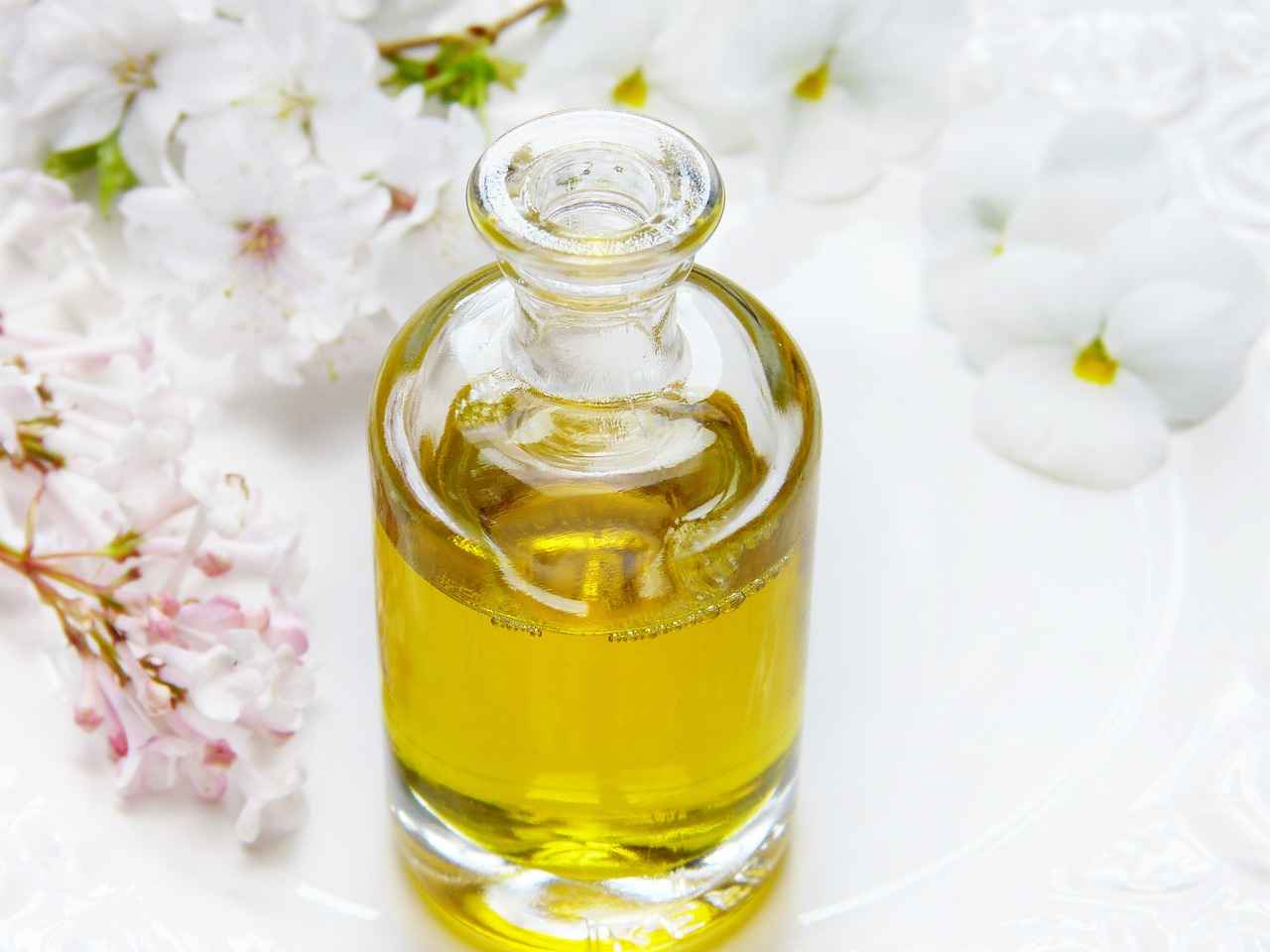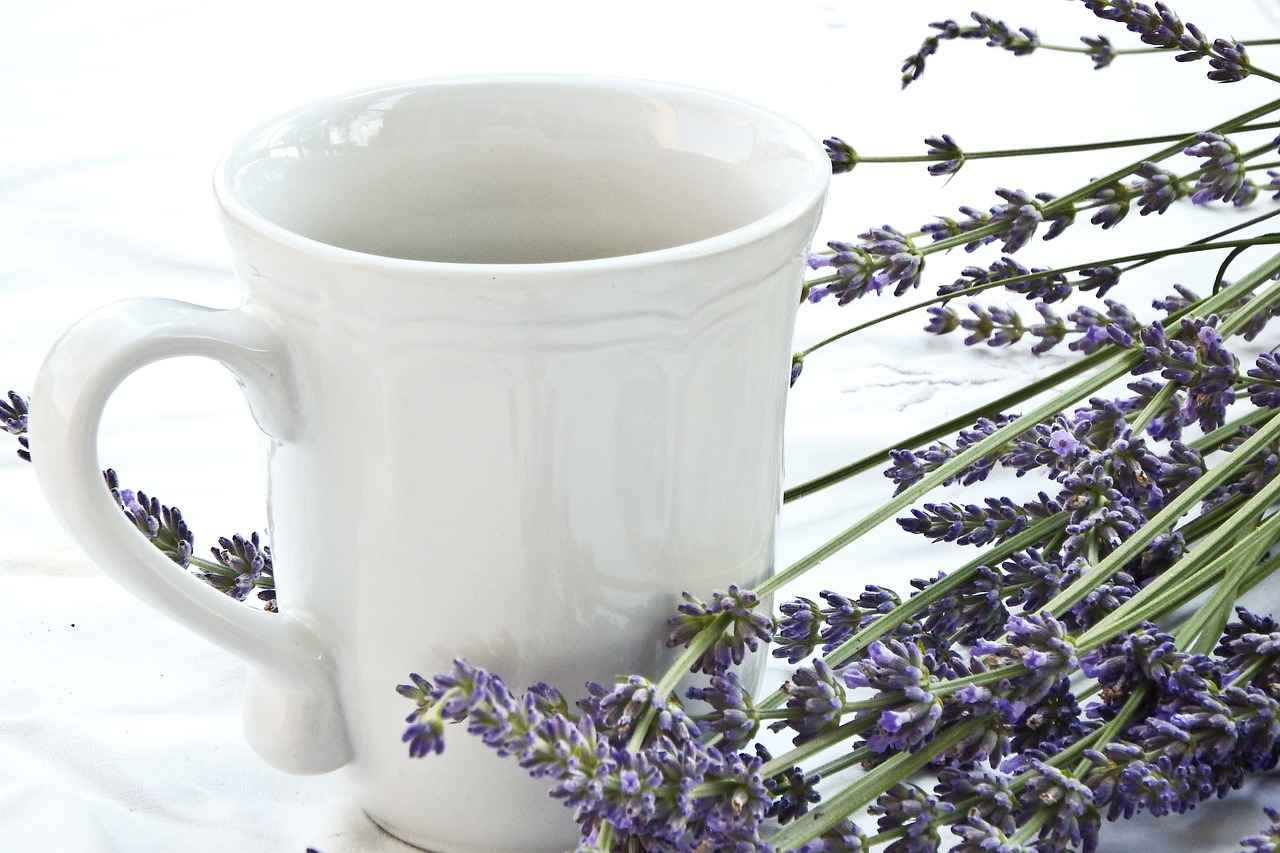This article delves into the mood-enhancing properties of lavender oil, examining its uses, benefits, and practical applications for improving emotional well-being and promoting relaxation.
What is Lavender Oil?
Lavender oil is an essential oil extracted from the lavender plant, celebrated for its soothing aroma and therapeutic qualities. Historically, it has been utilized in aromatherapy and holistic healing practices for centuries, making it a cornerstone in natural wellness.
Benefits of Lavender Oil for Mood Enhancement
Lavender oil is particularly noted for its capacity to mitigate stress and anxiety. Research indicates that its calming properties can substantially enhance mood and foster emotional stability.
Scientific Evidence Supporting Lavender’s Efficacy
Numerous studies have shown that lavender oil can effectively alleviate symptoms associated with anxiety and depression, proving to be a viable natural remedy for mood disorders. Its impact on the central nervous system is particularly noteworthy.
Clinical Studies on Lavender Oil
Clinical trials have consistently demonstrated that lavender oil can lower anxiety levels and improve sleep quality, which are both crucial for overall mood enhancement and emotional health.
Lavender Oil vs. Traditional Medications
Comparative research suggests that lavender oil might be as effective as some conventional medications for anxiety, but with fewer side effects, making it a more appealing option for many.
How to Use Lavender Oil for Mood Improvement
There are various methods to incorporate lavender oil into your daily routine, including aromatherapy and topical applications, each offering unique benefits for mood enhancement and relaxation.
Aromatherapy with Lavender Oil
Aromatherapy is a popular method for utilizing lavender oil. Inhaling its fragrance can promote relaxation and uplift mood, making it a staple in many wellness regimens.
Diffusing Lavender Oil
Using a diffuser is an excellent way to spread lavender oil’s calming scent throughout a space, creating a peaceful atmosphere conducive to stress reduction and mood elevation.
Topical Applications of Lavender Oil
Direct application of lavender oil to the skin can yield localized benefits. It can be blended with carrier oils for massages or added to bathwater for a relaxing soak.
Potential Side Effects and Precautions
While lavender oil is generally considered safe, some individuals may experience allergic reactions or skin irritation. It is advisable to perform a patch test before use and consult a healthcare provider if necessary.
Conclusion: Embracing Lavender Oil for Emotional Well-Being
Integrating lavender oil into your daily routine can provide substantial mood-enhancing benefits. By understanding its properties and applications, you can effectively boost your emotional well-being in a natural way.

What is Lavender Oil?
Lavender oil is a highly sought-after essential oil extracted from the flowers of the lavender plant, scientifically known as Lavandula angustifolia. This aromatic oil is celebrated for its soothing fragrance and is widely recognized for its therapeutic benefits. With a history that spans centuries, lavender oil has been a cornerstone in both aromatherapy and traditional medicine, primarily due to its calming and restorative properties.
Lavender oil is typically obtained through a process called steam distillation, which preserves the plant’s natural compounds, including linalool and linalyl acetate, known for their relaxing effects. The oil’s distinctive scent is often described as floral, fresh, and herbaceous, making it a favorite in various wellness practices.
Historical Context
- Lavender has been used since ancient times, with records indicating its use by the Egyptians in the mummification process and by the Romans for bathing and relaxation.
- Throughout the Middle Ages, lavender was believed to ward off evil spirits and was commonly used in sachets to scent linens.
Modern Uses
In today’s world, lavender oil is predominantly used for its aromatic properties in diffusers, candles, and personal care products. It is also a popular ingredient in massage oils and bath products, providing both physical and emotional benefits. Many people find that incorporating lavender oil into their daily routines can lead to improved emotional well-being and a sense of calm.
In summary, lavender oil is not just a pleasant fragrance; it is a potent essential oil with a rich history and numerous applications. Its ability to promote relaxation and alleviate stress makes it a valuable addition to anyone’s wellness toolkit.

Benefits of Lavender Oil for Mood Enhancement
Lavender oil, extracted from the flowers of the lavender plant, has been celebrated for its remarkable ability to enhance mood and promote emotional well-being. This essential oil is not only known for its delightful fragrance but also for its therapeutic properties that have been utilized for centuries across various cultures.
Research indicates that lavender oil possesses potent calming effects that can significantly alleviate symptoms of stress and anxiety. A number of studies have shown that inhaling lavender aroma can lead to a noticeable decrease in anxiety levels, making it a popular choice for those seeking natural remedies for emotional distress.
Scientific Evidence Supporting Lavender’s Efficacy
- Numerous clinical studies have confirmed that lavender oil can effectively reduce anxiety and depression symptoms.
- Research published in reputable journals highlights its positive impact on the central nervous system, contributing to improved mood and relaxation.
How to Use Lavender Oil for Mood Improvement
Incorporating lavender oil into your daily routine can be done in several effective ways:
- Aromatherapy: Utilizing a diffuser to spread the soothing scent of lavender throughout your space can create a calming atmosphere, ideal for relaxation.
- Topical Applications: Lavender oil can be mixed with carrier oils for massages or added to bathwater, providing a serene experience that enhances emotional balance.
Potential Side Effects and Precautions
While lavender oil is generally safe for most individuals, it is important to conduct a patch test before applying it to the skin. Some people may experience allergic reactions or irritation. Consulting a healthcare provider is advisable if you have any concerns.
Conclusion: Embracing Lavender Oil for Emotional Well-Being
Integrating lavender oil into your lifestyle can yield significant mood-enhancing benefits. Understanding its properties and applications allows for a natural approach to improving emotional health and achieving a sense of tranquility.
Scientific Evidence Supporting Lavender’s Efficacy
Lavender oil has gained significant attention in recent years for its potential to alleviate symptoms associated with anxiety and depression. Numerous studies have explored its effects on the central nervous system, revealing promising results that highlight its therapeutic benefits.
One pivotal study published in the journal Phytomedicine demonstrated that inhalation of lavender essential oil significantly reduced anxiety levels in participants. The study utilized a randomized, double-blind, placebo-controlled design, which is considered the gold standard in clinical research. Participants who inhaled lavender oil reported lower anxiety scores compared to those who received a placebo.
Another research article published in the Journal of Clinical Psychiatry examined the effects of lavender oil on patients experiencing generalized anxiety disorder. The findings indicated that lavender oil was effective in reducing anxiety symptoms, with participants showing improvements comparable to those treated with traditional anti-anxiety medications, but with fewer side effects.
Moreover, a meta-analysis of several clinical trials, featured in the Journal of Alternative and Complementary Medicine, concluded that lavender oil significantly enhances sleep quality. Improved sleep is closely linked to better mood regulation and emotional balance, further solidifying lavender’s role as a natural remedy for mood disorders.
In addition to its calming effects, lavender oil’s ability to influence neurotransmitters such as serotonin and dopamine has been a focal point of research. These neurotransmitters play a vital role in mood stabilization, and lavender’s interaction with them suggests a biochemical foundation for its anxiolytic properties.
Overall, the scientific evidence supporting the efficacy of lavender oil as a natural remedy for anxiety and depression is compelling. Its ability to promote relaxation and emotional well-being makes it a valuable addition to holistic health practices.
Clinical Studies on Lavender Oil
Lavender oil has garnered significant attention in the field of natural remedies, particularly for its anxiety-reducing and sleep-enhancing properties. Numerous clinical studies have been conducted to evaluate its efficacy, revealing promising results that support its use in promoting emotional well-being.
One of the most notable studies published in the Journal of Alternative and Complementary Medicine found that participants who inhaled lavender oil experienced a marked decrease in anxiety levels. This research indicates that lavender oil can be a powerful tool for individuals seeking to manage stress in their daily lives.
Another significant clinical trial published in Frontiers in Behavioral Neuroscience highlighted lavender oil’s impact on sleep quality. The study demonstrated that subjects who used lavender oil before bedtime reported improvements in both the duration and quality of their sleep. This enhancement in sleep is crucial, as adequate rest is linked to better mood regulation and overall mental health.
- Research Findings:
- Reduction in anxiety symptoms.
- Improvement in sleep quality and duration.
- Overall enhancement of mood and emotional stability.
Moreover, comparative studies suggest that lavender oil may serve as an alternative to traditional medications for anxiety disorders. Many individuals reported fewer side effects when using lavender oil compared to prescription drugs, making it an appealing option for those wary of conventional treatments.
In conclusion, the body of evidence supporting the effectiveness of lavender oil in reducing anxiety and enhancing sleep is compelling. These findings underscore the potential of lavender oil as a natural remedy for improving emotional health and overall quality of life.
Lavender Oil vs. Traditional Medications
In recent years, there has been a growing interest in the therapeutic properties of essential oils, particularly lavender oil. This natural remedy has garnered attention for its potential to alleviate symptoms of anxiety and stress, often compared to conventional medications. Comparative studies have shown that lavender oil may be as effective as some traditional treatments for anxiety, yet with a significantly lower incidence of side effects. This makes lavender oil a compelling option for those seeking safer alternatives.
One of the key advantages of lavender oil is its natural composition. Unlike pharmaceutical options, which can sometimes lead to dependency or unwanted side effects, lavender oil is derived from the lavender plant and is generally well-tolerated. Research indicates that lavender oil can positively influence the central nervous system, promoting relaxation and reducing anxiety levels. In fact, some studies suggest that inhaling lavender oil can lead to a decrease in heart rate and blood pressure, contributing to an overall sense of calm.
Moreover, lavender oil is versatile in its application. It can be used in various forms, such as essential oil diffusers, topical applications, or even in bath products. This flexibility allows individuals to incorporate it seamlessly into their daily routines, enhancing emotional well-being without the complexities often associated with traditional medications.
However, while lavender oil presents a promising alternative, it is vital to approach its use with caution. Although it is generally safe, some individuals may experience allergic reactions or skin irritations. Therefore, it is recommended to conduct a patch test before widespread use and consult a healthcare provider if any adverse reactions occur.
In conclusion, the comparison between lavender oil and traditional medications highlights the potential of this natural remedy as a viable option for managing anxiety. With its fewer side effects and ease of use, lavender oil may offer a safer and more holistic approach to emotional well-being.
How to Use Lavender Oil for Mood Improvement
Lavender oil is a versatile essential oil that can be easily integrated into your daily routine, providing a multitude of benefits for mood enhancement and relaxation. Here are several effective methods for utilizing lavender oil:
- Aromatherapy: One of the most effective ways to experience the benefits of lavender oil is through aromatherapy. Simply inhaling its soothing scent can help reduce stress and promote a sense of calm.
- Diffusion: Using a diffuser to disperse lavender oil throughout your living space can create a peaceful environment. This method allows the calming aroma to fill the room, making it ideal for meditation or relaxation.
- Topical Application: Lavender oil can be applied directly to the skin, often mixed with a carrier oil such as coconut or jojoba oil. This method is particularly beneficial for localized relief, such as easing tension in sore muscles.
- Bathing: Adding a few drops of lavender oil to your bathwater can transform your bathing experience into a soothing ritual. The warm water combined with lavender’s scent can help alleviate stress and promote relaxation.
- Massage: Incorporating lavender oil into massage therapy can enhance relaxation. The oil not only adds a calming aroma but also helps soothe muscle tension when used in conjunction with gentle massage techniques.
Each of these methods offers unique benefits, allowing you to choose the one that best fits your lifestyle and preferences. Whether you prefer the calming effects of aromatherapy or the soothing touch of a lavender-infused massage, integrating lavender oil into your routine can significantly enhance your emotional well-being.
Conclusion: By exploring various applications of lavender oil, you can effectively harness its mood-lifting properties. Experiment with different methods to find what works best for you, and embrace the natural benefits of this wonderful essential oil.

Aromatherapy with Lavender Oil
is a widely recognized practice known for its therapeutic benefits. Lavender oil, extracted from the Lavandula angustifolia plant, is celebrated for its calming aroma and its ability to promote emotional wellness. This article delves into how lavender oil can be effectively used in aromatherapy to enhance mood and alleviate stress.
What Makes Lavender Oil Special? The soothing scent of lavender oil is not just pleasant; it has been scientifically proven to help reduce anxiety and improve overall mood. When inhaled, the aroma interacts with the brain’s limbic system, which plays a crucial role in regulating emotions. This makes lavender oil a staple in many wellness practices.
| Benefits of Lavender Oil | Description |
|---|---|
| Reduces Anxiety | Lavender oil has calming properties that help lower anxiety levels. |
| Improves Sleep Quality | Using lavender oil before bedtime can enhance sleep quality and duration. |
| Enhances Mood | Inhalation of lavender oil can uplift mood and promote a sense of well-being. |
How to Use Lavender Oil in Aromatherapy
- Diffusion: Use a diffuser to disperse lavender oil throughout your living space. This method creates a calming atmosphere, perfect for relaxation.
- Inhalation: Simply inhaling lavender oil from the bottle or a cotton ball can provide immediate stress relief.
- Bathing: Adding a few drops of lavender oil to your bath can transform a regular bath into a soothing spa experience.
Precautions to Consider While lavender oil is generally safe for most individuals, it is important to conduct a patch test to check for any allergic reactions. Pregnant women and those with specific health conditions should consult a healthcare provider before use.
Conclusion Incorporating lavender oil into your aromatherapy routine can significantly enhance your emotional well-being. By leveraging its calming effects, you can create a serene environment that promotes relaxation and uplifts your mood naturally.
Diffusing Lavender Oil
is a popular method for harnessing the calming and uplifting benefits of this essential oil. By using a diffuser, you can disperse the soothing aroma of lavender throughout your living space, creating an atmosphere that promotes relaxation and emotional balance.
The gentle scent of lavender oil is known to have a profound impact on our mood. When the aroma fills a room, it can help to reduce stress and anxiety levels, making it an excellent choice for those looking to create a tranquil environment. This practice is particularly beneficial after a long day or during stressful periods, as it can help you unwind and regain a sense of peace.
Using a diffuser is not only effective but also easy. Simply add a few drops of lavender oil to the water in your diffuser, turn it on, and let the calming fragrance envelop your space. Whether you’re working, meditating, or enjoying a quiet evening, the scent of lavender can elevate your mood and enhance your overall well-being.
Moreover, diffusing lavender oil can also improve sleep quality. Many people find that inhaling the soothing aroma before bedtime helps them fall asleep faster and enjoy a more restful night. This is particularly important for those who struggle with insomnia or restless nights.
- How to Choose a Diffuser: Look for one that suits your needs, whether it’s a simple ultrasonic model or one with additional features like ambient lighting.
- Best Times to Diffuse: Consider diffusing lavender oil during your morning routine, while working, or in the evening to promote relaxation.
- Combining Scents: For a unique aroma, try blending lavender with other essential oils like chamomile or bergamot, which can further enhance relaxation.
In conclusion, is a simple yet powerful way to create a calming environment that can significantly improve your mood and well-being. By integrating this practice into your daily routine, you can experience the many benefits of lavender oil, making your space a sanctuary of tranquility.
Topical Applications of Lavender Oil
Lavender oil is not just a delightful fragrance; it is a powerful essential oil that offers numerous benefits when applied topically. This method allows for direct absorption into the skin, providing localized relief and enhancing overall well-being.
One of the most effective ways to use lavender oil is by mixing it with a carrier oil. Carrier oils, such as coconut or jojoba oil, dilute the potency of essential oils, making them safe for direct application on the skin. This combination is particularly beneficial during massages, where the soothing properties of lavender can help alleviate muscle tension and promote relaxation.
Additionally, adding lavender oil to your bath can transform an ordinary soak into a therapeutic experience. The warm water helps to release the oil’s calming aroma, which can help reduce stress and anxiety. To create a soothing bath, simply mix a few drops of lavender oil with a carrier oil and add it to your bathwater. This not only enhances the bathing experience but also nourishes the skin.
For those seeking quick relief from headaches or tension, applying diluted lavender oil to the temples can be effective. Its anti-inflammatory properties may help ease discomfort and promote a sense of calm. Always remember to perform a patch test before applying lavender oil to larger skin areas, especially if you have sensitive skin.
In summary, topical applications of lavender oil can significantly enhance your emotional and physical well-being. Whether through massages, baths, or targeted relief, the benefits of this essential oil are vast and varied. By incorporating lavender oil into your self-care routine, you can enjoy its soothing effects while promoting a peaceful state of mind.

Potential Side Effects and Precautions
While lavender oil is widely celebrated for its numerous therapeutic benefits, it is crucial to recognize that some individuals may experience adverse reactions. These can range from mild to severe, depending on the person’s sensitivity and the method of application.
- Allergic Reactions: Some users may develop an allergy to lavender oil, leading to symptoms such as skin rashes, itching, or even swelling in more severe cases.
- Skin Irritation: Direct application of lavender oil without dilution can cause skin irritation, especially for individuals with sensitive skin. It is advisable to always mix lavender oil with a suitable carrier oil.
- Respiratory Issues: Inhaling lavender oil through diffusers or sprays may trigger respiratory problems in individuals with asthma or other respiratory conditions.
- Hormonal Effects: Lavender oil has been noted to have hormonal effects, which can lead to gynecomastia (breast development in males) if used excessively. Caution is advised, particularly for young boys.
To minimize the risk of side effects, it is essential to conduct a patch test before using lavender oil extensively. This involves applying a small amount of diluted oil to a discreet area of skin and observing for any adverse reactions over 24 hours.
Furthermore, individuals with pre-existing health conditions or those who are pregnant or nursing should consult a healthcare provider before incorporating lavender oil into their routine. This precaution ensures that any potential interactions or contraindications are addressed, promoting safe usage.
In conclusion, while lavender oil can be a valuable addition to your wellness practices, understanding its potential side effects and taking necessary precautions is vital for safe and effective use.

Conclusion: Embracing Lavender Oil for Emotional Well-Being
Incorporating lavender oil into your daily routine can offer significant mood-lifting benefits. This essential oil, derived from the lavender plant, is not just a fragrant addition to your home; it is a powerful tool for enhancing emotional well-being. By understanding its uses, effects, and practical applications, you can effectively harness its potential to improve your mood and promote relaxation.
Lavender oil is widely recognized for its calming properties. It has been utilized in aromatherapy for centuries, helping individuals manage stress, anxiety, and depressive symptoms. Numerous studies have indicated that the inhalation of lavender’s soothing aroma can lead to a reduction in cortisol levels, the hormone associated with stress.
Moreover, lavender oil can be integrated into your life in several ways:
- Aromatherapy: Use a diffuser to disperse lavender oil throughout your living space, creating a serene environment.
- Topical Applications: Mix lavender oil with a carrier oil for massage or add it to your bath for a calming soak.
- Inhalation: Simply inhale lavender oil directly from the bottle or apply a few drops to a cotton ball.
While lavender oil is generally safe for most people, it is essential to conduct a patch test before applying it to the skin to avoid potential allergic reactions. Consulting with a healthcare provider is advisable, especially for individuals with pre-existing conditions or those who are pregnant.
In conclusion, embracing lavender oil in your daily routine can significantly enhance your emotional well-being. By understanding its myriad benefits and how to use it effectively, you can foster a more relaxed and balanced state of mind, allowing you to navigate the stresses of daily life with greater ease.












